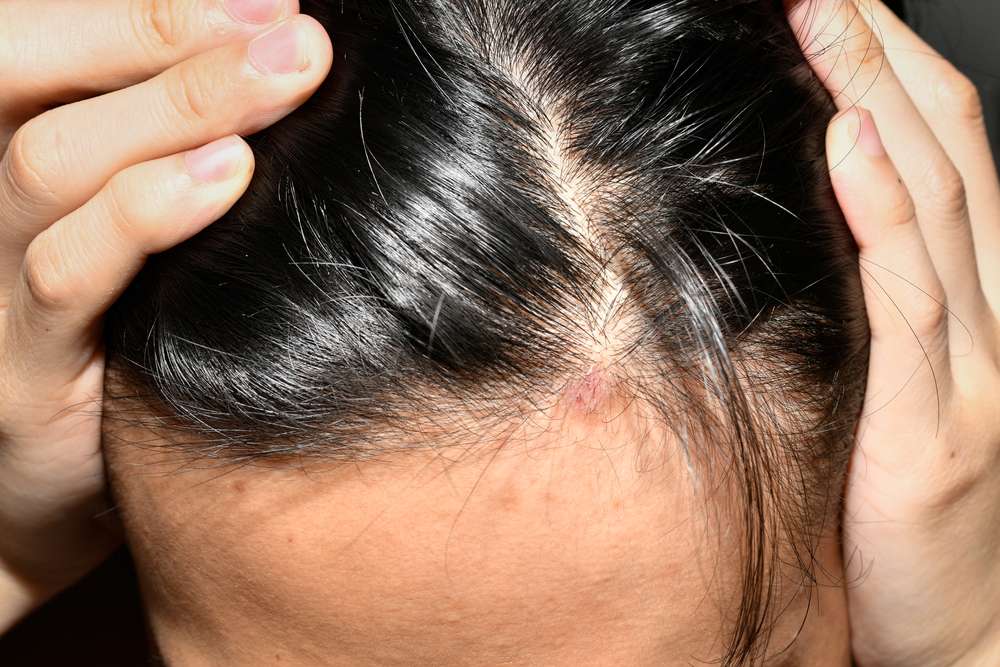Scalp Psoriasis: Manage Symptoms and Best Treatment Options
Scalp psoriasis affects millions, causing red, itchy, and scaly patches that can extend beyond the hairline. This guide explains common symptoms, practical topical and systemic treatments, and lifestyle strategies to reduce flares and improve comfort. Learn evidence-based options—from medicated shampoos and topical steroids to biologics and phototherapy—plus self-care tips to support medical treatment and preserve hair and scalp health.

Scalp psoriasis is a chronic inflammatory skin condition that often produces red, raised patches covered with silvery scales. While severity ranges from a few small flakes to widespread plaques that cross the hairline, understanding the signs and available therapies makes it easier to control symptoms and protect scalp health.
Recognizing the signs
Common symptoms of scalp psoriasis include:
- Red, inflamed patches or plaques on the scalp
- Thick, silvery-white scales that can extend past the hairline
- Intense itching or a burning sensation
- Dry, cracked skin that may bleed after scratching
- Temporary hair thinning or loss in affected areas
- Tenderness or soreness on the scalp
Symptoms can wax and wane; some people have only mild flaking, while others experience painful, extensive involvement. Accurate recognition helps guide treatment choices.
Topical therapies (first-line approaches)
Topical treatments are usually the initial step for scalp psoriasis because they act directly on affected skin and have fewer systemic effects. Common options include:
- Medicated shampoos: Products containing salicylic acid, coal tar, or ketoconazole help loosen and remove scales, reduce inflammation, and control flaking. Regular, appropriate use is key for benefit.
- Topical corticosteroids: Prescription steroid solutions, foams, gels, or lotions are effective at reducing inflammation, itching, and plaque thickness. Long-term or high-potency steroid use should be supervised to avoid skin thinning and other side effects.
- Vitamin D analogs: Calcipotriene (calcipotriol) slows abnormal skin cell growth and often complements steroid therapy to maintain results.
- Topical retinoids: Vitamin A–derived creams normalize cell turnover and can reduce plaque formation.
- Calcineurin inhibitors: Tacrolimus and pimecrolimus may help in sensitive areas or when steroids are not suitable, though they are used off-label for scalp involvement in some cases.
Follow application directions carefully; some formulations are intended for overnight use while others are rinsed out. Effectiveness varies; rotating or combining agents under a clinician’s guidance is common.
When systemic treatments are needed
If scalp psoriasis is severe, unresponsive to topical care, or part of more extensive body psoriasis, systemic therapies may be recommended. Options include:
- Oral medications: Methotrexate, cyclosporine, and acitretin affect the immune system or skin cell production and can reduce widespread disease. These drugs usually require blood tests and monitoring for side effects.
- Biologic therapies: Injectable biologics target specific immune pathways (for example, TNF or interleukin inhibitors). They can be highly effective for stubborn or extensive psoriasis, including scalp disease, but are typically more expensive and require specialist oversight.
- Phototherapy: Controlled UV light exposure slows skin cell turnover and calms inflammation. While whole-head phototherapy can be cumbersome, targeted devices and clinic-based options make light treatment feasible for scalp lesions.
Systemic treatments demand careful risk–benefit discussion and regular monitoring by a dermatologist or other specialist.
Complementary self-care and lifestyle measures
Medical treatments work best when combined with sensible self-care. Consider these supportive strategies:
- Stress management: Emotional stress commonly triggers flares. Techniques such as meditation, yoga, therapy, or consistent exercise can reduce flare frequency and severity.
- Dietary choices: While no universal “psoriasis diet” exists, some people notice improvement when they reduce highly processed or inflammatory foods and increase omega-3 fatty acids (found in fatty fish and flaxseed).
- Gentle hair care: Use mild, fragrance-free shampoos; avoid hot tools and harsh chemical treatments that irritate the scalp.
- Moisturizing: Oils and noncomedogenic moisturizers can soften scaling and soothe itching. Apply to damp skin for better absorption.
- Trigger avoidance: Identify personal triggers—certain hair products, cold dry weather, smoking, or alcohol—and limit exposure where possible.
Practical tips for applying scalp treatments
- Part hair in thin sections to expose plaques and apply topical solutions directly to the skin rather than the hair shafts.
- Use medicated shampoos as directed for the recommended duration and frequency; many require several weeks for noticeable improvement.
- If multiple topical products are prescribed, ask your clinician about the optimal order and timing to maximize effectiveness and reduce irritation.
| Treatment category | Examples | Notes |
|---|---|---|
| Over-the-counter | Salicylic acid, coal tar, ketoconazole shampoos | Helpful for mild scaling and maintenance |
| Prescription topicals | Corticosteroid solutions/foams, calcipotriene, topical retinoids | Applied directly to plaques; follow physician guidance |
| Systemic medications | Methotrexate, cyclosporine, acitretin | For widespread or resistant disease; requires monitoring |
| Biologics | Injectable IL/TNF inhibitors | Targeted, effective for severe cases; higher cost |
| Phototherapy | UVB, targeted scalp devices | Clinic or home devices can treat scalp effectively |
Cost disclaimer: Treatment costs vary widely by country, insurance coverage, and provider; this table provides general categories and not exact prices.
Working with a dermatologist
Because scalp psoriasis can mimic or overlap with other scalp conditions (such as seborrheic dermatitis or fungal infections), an accurate diagnosis is important. A dermatologist will tailor a plan based on disease extent, prior treatment responses, medical history, and lifestyle factors. They can also monitor for medication side effects and adjust therapy over time.
Scalp psoriasis can be persistent and emotionally burdensome, but many people achieve substantial improvement through a combination of targeted medical therapies and practical self-care. If over-the-counter options haven’t helped, or if symptoms are painful, widespread, or causing hair loss, schedule an appointment with a dermatologist to create a personalized strategy.
This article is for informational purposes only and should not be considered medical advice. Please consult a qualified healthcare professional for personalized guidance and treatment.






